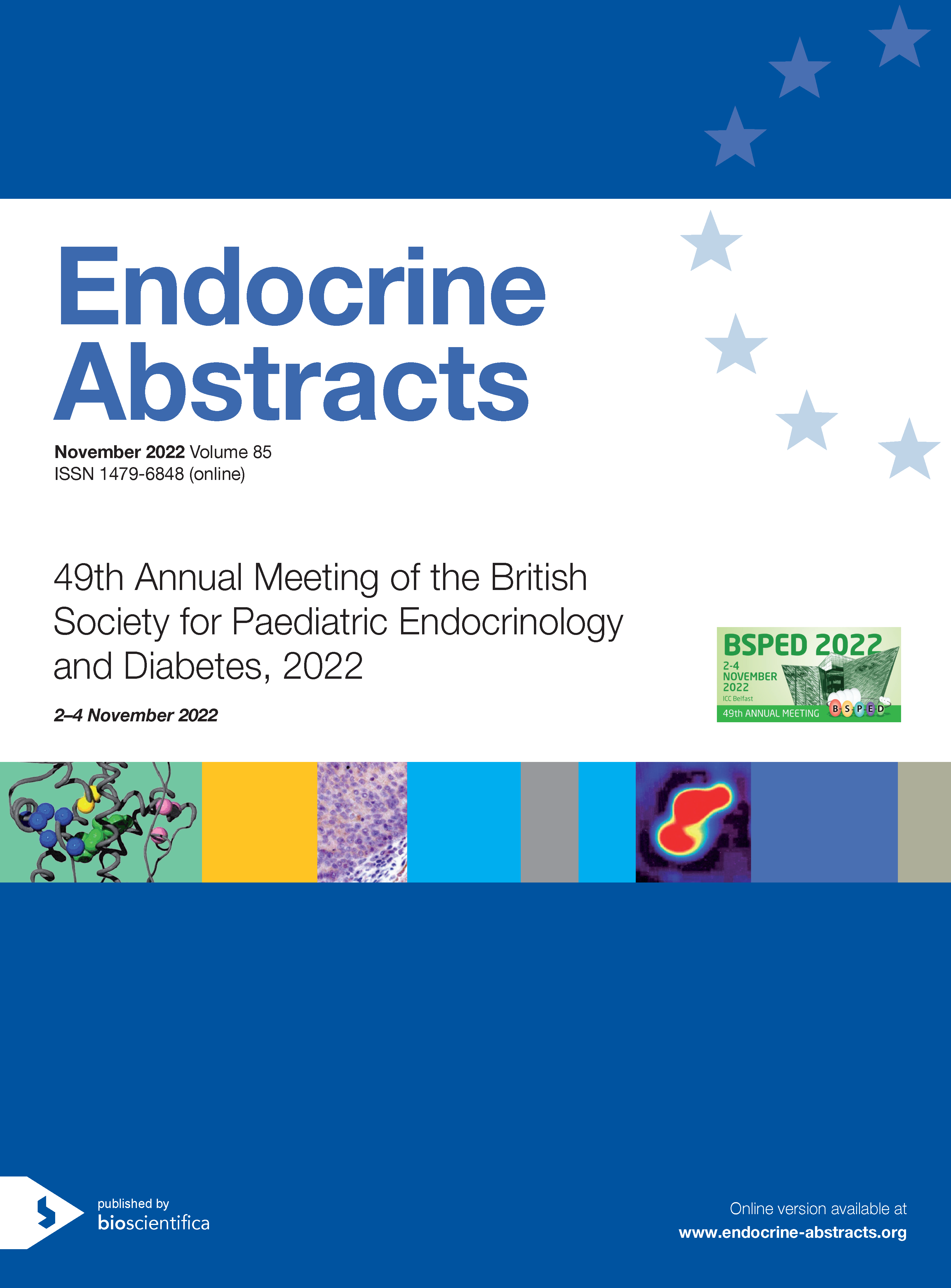Searchable abstracts of presentations at key conferences in endocrinology

49th Annual Meeting of the British Society for Paediatric Endocrinology and Diabetes
Belfast,
Ireland
02 Nov 2022 - 04 Nov 2022

49th Meeting of the British Society for Paediatric Endocrinology and Diabetes



